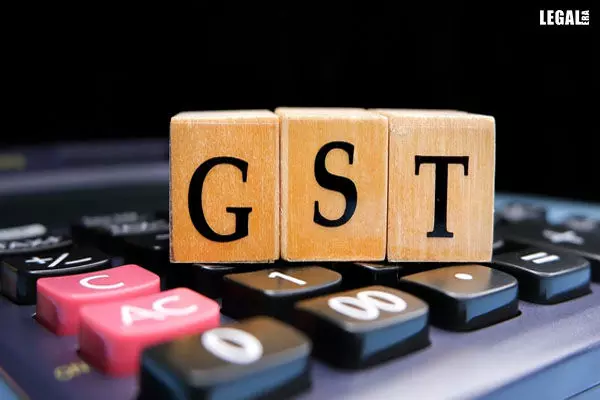- Home
- News
- Articles+
- Aerospace
- Artificial Intelligence
- Agriculture
- Alternate Dispute Resolution
- Arbitration & Mediation
- Banking and Finance
- Bankruptcy
- Book Review
- Bribery & Corruption
- Commercial Litigation
- Competition Law
- Conference Reports
- Consumer Products
- Contract
- Corporate Governance
- Corporate Law
- Covid-19
- Cryptocurrency
- Cybersecurity
- Data Protection
- Defence
- Digital Economy
- E-commerce
- Employment Law
- Energy and Natural Resources
- Entertainment and Sports Law
- Environmental Law
- Environmental, Social, and Governance
- Foreign Direct Investment
- Food and Beverage
- Gaming
- Health Care
- IBC Diaries
- In Focus
- Inclusion & Diversity
- Insurance Law
- Intellectual Property
- International Law
- IP & Tech Era
- Know the Law
- Labour Laws
- Law & Policy and Regulation
- Litigation
- Litigation Funding
- Manufacturing
- Mergers & Acquisitions
- NFTs
- Privacy
- Private Equity
- Project Finance
- Real Estate
- Risk and Compliance
- Student Corner
- Take On Board
- Tax
- Technology Media and Telecom
- Tributes
- Viewpoint
- Zoom In
- Law Firms
- In-House
- Rankings
- E-Magazine
- Legal Era TV
- Events
- Middle East
- Africa
- News
- Articles
- Aerospace
- Artificial Intelligence
- Agriculture
- Alternate Dispute Resolution
- Arbitration & Mediation
- Banking and Finance
- Bankruptcy
- Book Review
- Bribery & Corruption
- Commercial Litigation
- Competition Law
- Conference Reports
- Consumer Products
- Contract
- Corporate Governance
- Corporate Law
- Covid-19
- Cryptocurrency
- Cybersecurity
- Data Protection
- Defence
- Digital Economy
- E-commerce
- Employment Law
- Energy and Natural Resources
- Entertainment and Sports Law
- Environmental Law
- Environmental, Social, and Governance
- Foreign Direct Investment
- Food and Beverage
- Gaming
- Health Care
- IBC Diaries
- In Focus
- Inclusion & Diversity
- Insurance Law
- Intellectual Property
- International Law
- IP & Tech Era
- Know the Law
- Labour Laws
- Law & Policy and Regulation
- Litigation
- Litigation Funding
- Manufacturing
- Mergers & Acquisitions
- NFTs
- Privacy
- Private Equity
- Project Finance
- Real Estate
- Risk and Compliance
- Student Corner
- Take On Board
- Tax
- Technology Media and Telecom
- Tributes
- Viewpoint
- Zoom In
- Law Firms
- In-House
- Rankings
- E-Magazine
- Legal Era TV
- Events
- Middle East
- Africa
Orissa High Court grants interim relief to Koraput’s Hotel Imperial Inn in GST appeal

Orissa High Court grants interim relief to Koraput’s Hotel Imperial Inn in GST appeal
Stays the remaining tax demands on a condition that the petitioner pays the amount within four weeks
The Orissa High Court has granted interim relief to Hotel Imperial Inn, Koraput, (petitioner) in a Goods and Services Tax (GST) appeal case.
It acknowledged that the petitioner sought a remedy under the provisions of the Odisha Goods and Services Tax Act, 2017 by approaching the 2nd appellate tribunal. However, since the tribunal was not yet constituted, the Court ordered that the remaining tax demand would be stayed during the pendency of the writ petition.
The petitioner had challenged the first appellate tribunal’s order issued by the Joint Commissioner of State Tax (Appeal). It argued that the appeal was not admitted by the authority, citing violation of sub-sections (1) & (4) of Section 107 of the Goods and Services Tax Act, 2017. Additionally, the appeal filed under sub-Section (1) of Section 107 of the Odisha GST Act was rejected.
The petitioner argued that it should not be held liable to pay the tax and penalty. It submitted that it had already deposited 10 percent of the demanded tax amount before the first appellate authority. And due to the absence of a second appellate forum, it contended that the court should entertain the writ petition.
On the other hand, the standing counsel for the revenue department argued against condoning the delay in preferring the appeal. He suggested that if the petitioner chose to appeal before the second appellate tribunal, it must pay 20 percent of the remaining disputed tax.
However, the Division Bench comprising Justice B.R. Sarangi and Justice M.S. Raman granted interim relief to the petitioner.
The Judges held that the remaining tax demand would be stayed during the pendency of the writ petition. The stay was subject to the condition that the petitioner must deposit the entire tax demand amount within four weeks.



